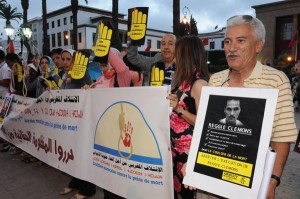ANSAmed
by Diego Minuti
Amnesty International and the Moroccan government have been lobbying accusatory statements back and forth on the issue of torture which, according to the human rights organization, is practiced systematically in the North African nation. In its report on alleged use of state violence in Morocco and Western Sahara, Amnesty cited 173 cases of torture of ”students, political activists with left-wing or Islamist affiliations and supporters of self-determination for Western Sahara as well as people suspected of terrorism or ordinary crimes”.
Those that choose to report torture, the organization says, know well that they risk up to five years in prison for having ”slandered” state officials. The report, Shadow of Impunity: Torture in Morocco and Western Sahara, describes how the use of violence in jails, barracks and police stations seems systematic, with refined torture techniques of both a physical (electrical shocks, sexual violence and being forced to stay in unnatural and painful positions for extended periods) and psychological nature aiming to crush the resistance of those subjected to them.
Amnesty asks that these practices be stopped and that reforms urgently be enacted, beginning with that of ensuring an independent judiciary so as to end impunity. Amnesty International Secretary General Salil Shetty said in presenting the report that the country’s image was tarnished by the continuing use of torture. The government immediately responded – about an hour after Shetty concluded the conference – through its inter-ministerial delegation for human rights. Delegation chief Abderazzak Rouane rejected both the conclusions and the premises of the report, which he claimed was conducted using unclear methods and which draws general conclusions from specific incidents.
Rouane denied the veracity of the figures, saying that ”only” 76 cases of torture had been recorded, compared with the 173 reported by Amnesty, and that Morocco had ”broken with the past”. Rouane then spoke about relations with Amnesty which, he said, had issued the report despite talks underway (there have been 10 so far) and Morocco’s willingness to intervene and take action. (ANSAmed).








